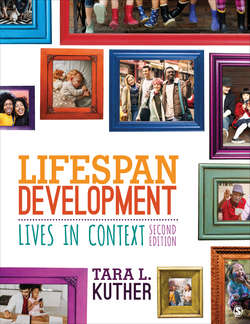Читать книгу Lifespan Development - Tara L. Kuther - Страница 374
На сайте Литреса книга снята с продажи.
Memory for Information
ОглавлениеShana turns over one card and exclaims, “I’ve seen this one before. I know where it is!” She quickly selects its duplicate by turning over a second card from an array of cards. Shana recognizes a card she has seen before and recalls its location. Children’s memory for specific information, such as the location of items, lists of words or numbers, and directions, can be studied using tasks that examine recognition memory and recall memory. Recognition memory, the ability to recognize a stimulus one has encountered before, is nearly perfect in 4- and 5-year-old children, but they are much less proficient in recall memory, the ability to generate a memory of a stimulus encountered before without seeing it again (Myers & Perlmutter, 2014).
Why do young children perform so poorly in recall tasks? Young children are not very effective at using memory strategies, cognitive activities that make us more likely to remember. For example, rehearsal, repeating items over and over, is a strategy that older children and adults use to recall lists of stimuli. Children do not spontaneously and reliably apply rehearsal until after the first grade (Bjorklund & Myers, 2015). Preschool-age children can be taught strategies, but they generally do not transfer their learning and apply it to new tasks (Titz & Karbach, 2014). This utilization deficiency seems to occur because of their limited working memories and difficulty inhibiting irrelevant stimuli. They cannot apply the strategy at the same time as they have to retain both the material to be learned and the strategy to be used. Instead, new information competes with the information the child is attempting to recall (Aslan & Bäuml, 2010). Overall, advances in executive function, working memory, and attention predict strategy use (Stone, Blumberg, Blair, & Cancelli, 2016).
However, young children do not always show more poor performance relative to adults. In one study, parents read a novel rhyming verse and a word list as their 4-year-old children’s bedtime story on 10 consecutive days. When asked to recall the verse, the 4-year-old children outperformed their parents and a set of young adults who also listened to the verse (Király, Takács, Kaldy, & Blaser, 2017). The children and adults did not differ in the ability to recall the gist of the verse. Unlike adults, young children are immersed in a culture of verse and rely on oral transmission of information, likely underlying their skill relative to adults.
